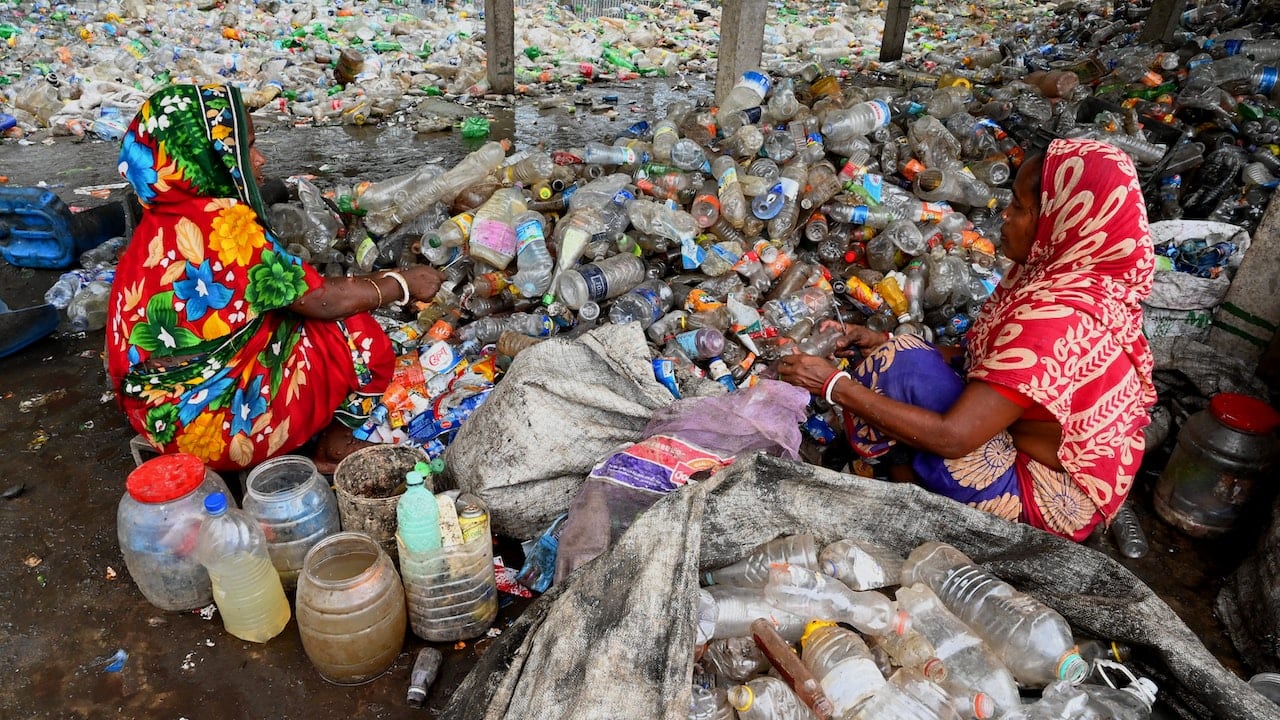



We are generating around 160,000 tonnes of waste every day, out of which around 50 percent is either getting landfilled or remains unattended, uncollected and unidentified. By 2031, the municipal solid waste (MSW) is projected to reach 165 million tonnes and jump to 436 million tonnes by 2050.
If MSW continues to be dumped without treatment, by the time independent India turns 100, it will need 3,40,000 cubic meter of landfill space every day (1,240 hectare per year). Considering the Government projected waste generation, the requirement of land for setting up landfill for 20 years (considering 10-meter-high waste pile) could be as high as 66,000 hectares of precious land, which India cannot afford to waste.
India's population is expected to grow to 1.6 billion by 2047 and 1.67 billion by 2050. This will have a direct impact on its waste generation. So, how do we reduce MSW and lower the burden on landfills? The waste management scenario in India is expected to transition significantly from now to 2047, and there will be a need for more inclusive approach and innovative solutions to address the challenges of waste generation and disposal.
No more indiscriminate dumping of mixed waste: Perhaps the major culprit in causing the environmental and health hazards associated with waste management is mixed waste dumping in unscientifically constructed and operated landfills typically referred to as “dumpsites” in India.
The scientific landfill sites shall be selected based on the regulatory norms stipulated under the Solid Waste Management Rules 2016 and are suitable for waste which is non-compostable, non-recyclable, non-recoverable and non-treatable. Locational criteria for siting a landfill site according to the Solid Waste Management Rules 2016 mandates a minimum distance of 200 metres from lakes and ponds, 100 metres from rivers, 500 metres from habitation, etc. In addition, a landfill site shall not be constructed in flood plains, critical habitat area, coastal regulation zone, wetlands, unstable zone such as landslide prone areas, fault zones, etc.
Cost-effective and inclusive methods of waste management: Waste conversion technologies, including a wide array of biological, chemical, mechanical and thermal technologies capable of converting MSW into useful products like compost and energy such as steam, electricity, natural gas and diesel/ ethanol, will contribute in managing huge quantities of waste generated in the country thereby minimizing the burden on the landfills.
Besides, it will be critical to adopt socially inclusive methods of waste management which can be done by integrating the informal sector in the city’s solid waste management chain. One classic example of integration of informal waste pickers is showcased by SWaCH, a cooperative of around 4,500 women waste pickers involved in providing door-to-door waste collection service to around 9 lakh properties in Pune City - thereby saving Rs 90 crore annually and enhancing the recycling rates of the city.
 Integrating the informal sector in the city’s solid waste management chain could help to enhance recycling rates in the city. (Photo by Mumtahina Tanni via Pexels)
Integrating the informal sector in the city’s solid waste management chain could help to enhance recycling rates in the city. (Photo by Mumtahina Tanni via Pexels)
Shift to a circular economy model of development: The circular economy is becoming increasingly mainstream, and this is likely to have a major impact on waste management in India. Businesses and consumers will have to reduce their waste footprint, and there will be a growing demand for sustainable waste management solutions.
Growth of the bioeconomy: The bioeconomy will grow rapidly in India, providing new opportunities for the recycling and reuse of organic waste. This helps to reduce the amount of waste that ends up in landfills or incinerators. This sector is expected to have a major impact on waste management in India, as it will provide new opportunities for the recycling and reuse of organic waste. For instance, the generation of Bio-CNG from biodegradable (wet) waste is gaining momentum these days and several policy initiatives including GOBARDhan scheme by the Ministry Jal Shakti, National Biogas Mission by the Ministry of New and Renewable Energy, government of India, are acting as catalyst for promoting the technology.
This sector could be a game-changer for India’s future waste management scenario considering the fact that a huge amount of agro-residue waste and biodegradable household waste is generated in India. Currently, Indore, the cleanest city of India, is converting 550 tonnes of its biodegradable waste into 17,000 kg of bio-CNG every day. By 2047, there should be many more cities following the Indore model of waste management.
Use of AI in waste management sector: Drones and other new technologies will be used to monitor waste collection and disposal, optimize waste routing, and identify recyclable materials. This will help to improve the efficiency of waste management systems.
 Dr Richa Singh
Dr Richa Singh
Discover the latest Business News, Sensex, and Nifty updates. Obtain Personal Finance insights, tax queries, and expert opinions on Moneycontrol or download the Moneycontrol App to stay updated!
Find the best of Al News in one place, specially curated for you every weekend.
Stay on top of the latest tech trends and biggest startup news.